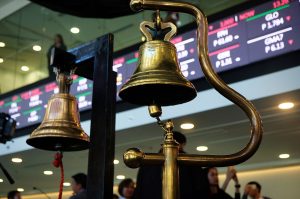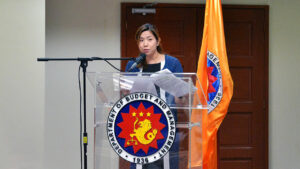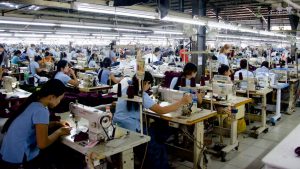The Philippines has too much politics, which impedes economic growth because our leaders engage in “politicking,” whether they be lawmakers in congress or local government officials, instead of solving the country’s problems. In contrast, countries that are better off than us have leaders who focus on the really important issues, whether it be building infrastructure or attracting investors, which is what Thailand did in the 1990s and what Vietnam is doing today.
The reason is that our fellow Filipinos elect the supremely unqualified to office: the legitimate and illegitimate celebrities, the rich who can buy their popularity, or the corrupt who can directly bribe voters or community leaders. This happens because voters lack education, which makes them incapable of sifting the capable from inept, and therefore equate celebrity with capability, or are poor or lack ethical moorings, and thus vulnerable to vote buying. The solution is to install a strong leader until we can improve the educational system so that our countrymen know only to vote into office those who are deserving and competent, while recognizing the moral wrong of selling their vote.
That, in slightly less than 200 words, is the problem with our country. It is a diagnosis and prescription for solutions more common among the middle- and upper-income classes.
It is also wrong — very, very wrong. It mistakes the system’s distortions as its causes.
Having a strong leader is an attractive solution because we often look a bit west and south and pine to have a leader in the same vein as Singapore’s Lee Kuan Yew, who led its transformation in one generation into a developed economy. Of course, widening the universe to other strongmen during the same period would bring into the story significantly less notable examples of strong leadership: North Korea’s Kim Il-sung and Kim Jong-il or Cambodia’s Pol Pot, or the various African leaders such as Uganda’s Idi Amin or Zimbabwe’s Robert Mugabe. The Singaporeans were lucky, or blessed, smart, existentially worried, or all the above. For whatever reason, they had the initial benefit of selecting a leader able to move the country forward. It’s a crapshoot. There is no established formula for ensuring the selection of a benevolent autocrat, or for assuming that an assumed benevolent leader does not eventually become a tyrant.
Having ignorant voters is also a convenient excuse, and often cited as a reason why maybe some people should not be allowed to vote. But don’t we also claim that our education system and our leaders were much better in the 1950s and 1960s? Going by this logic, we should not have fallen into the political morass that we have today, because the better-educated Filipinos of the past should have made the right decisions to avoid the democratic and economic problems that now bedevil us. And if we want present day examples, consider the disastrous political choices that have been made by voters in richer, better educated economies — whether it be Brexit, or the election of populists now in vogue in much of Europe or large swathes of Latin America. The painfully dysfunctional politics in the USA also stands as an example. In these countries, voters, whether they are rich or poor, from the north or south, educated or less educated, have made short-term, sub-optimal, resentment-driven, and ideologically or identity-determined decisions on who to choose on election day.
But, the question goes, shouldn’t it be obvious to voters that electing someone simply based on their popularity or their celebrity status is wrong? Voters, as this line of thinking goes, should gather all the information they can about candidates, and then choose the best ones based on their capabilities, plans, and credibility. We therefore have voter education campaigns, on the premise that an informed voter is the best kind, who will likely choose the most competent.
A few years ago, just before the pandemic, Mike Luz and Frankie Roman from the Asian Institute of Management (AIM) asked me to do a few guest sessions on political risk in their classes. One common question was why people voted irrationally, for the populists and demagogues, or the celebrities and the corrupt, or both.
I asked them two questions, mainly directed at the Filipinos in the class, and maybe readers can pause and consider them as well:
First, list down the top five issues that you care about as a voter. It could be traffic, the territorial dispute with China, corruption, drug abuse, food prices, the cost and quality of education, the cost of building or buying a house, pollution in our rivers and beaches, the difficulty of finding work, or the challenges in starting a business. Name it — something that resonates with you as a voter, which if politicians can address makes you believe that the system is working.
Second, list the top 12 senators in your mind, and ask yourself their position on these issues during the previous election season (which at that time was the 2016 elections) and whether their voting history since then, public statements and actions with their political parties are consistent with both their positions and your preferences as a voter.
I asked them to prepare a spreadsheet, with the grid of senators matched against their public positions on the issues, their promises in 2016, and whether they acted consistently on these issues through public statements, alliances, and their voting records, as did their parties. Then they would have to weigh the issues they cared about, so that they could finally rank the senators in terms of having fulfilled their promises and therefore deserving of their vote in future elections.
Predictably, the answer was that doing so would take a lot more time than those students had or were willing to give, because of the demands of their coursework. Not all of it would be available online, and even the ones available online would be fragmented. They would have to go through voting records in the senate on each of the issues they listed. They were not even confident that all that effort would affect the outcome of the elections, after all they were only a handful of Filipino voters.
But I asked: Is that not one of the characteristics of a good citizen in a democracy, which is to make informed decisions on who to vote for? Extrapolate your problem, I said as my final point, to those with less resources compared to you — the farmers, public utility drivers, service workers. Consider people without the money to buy the gigabytes of data, or the unlimited internet that most of you are accustomed to, or had to work second jobs, complete their housework. Would these voters expend the time, money, and effort to be “informed voters?” on the belief that by doing so they have a reasonable chance of changing the system and electing leaders for the better? The answer, obviously, is that they would not.
Of course, we junked the spreadsheet assignment at AIM, which was the point. One key essence of democracy is accountability, which is to hold our leaders responsible for their actions, either at the ballot box (for failure to act on their promises) or through the legal system (for their malfeasances). And then there is the further problem that many voters in the upper income classes or those who are more well educated assume that the “right” answers are obvious, when those in the lower income classes would argue that these so-called “right” answers favor only the narrow interests of the privileged and political elite.
The cost of acquiring information and knowledge to make the so-called intelligent decision at the ballot box is very high for the individual voter, in terms of time and resources, as is the problem of identifying what the “right” solution is. An office worker may want to liberalize the importation of all foods, which a farmer would then consider an act of oppression, because many of our marginalized sectors find themselves at the short end of the stick of promises that their skills will be upgraded, and new opportunities created for them.
And even if voters could make these decisions, they need an additional element, which is knowing that they can act together with like-minded voters to select their preferred candidate or candidates, and, if necessary, making second-best choices as a compromise. After all, if a single voter does not know how other voters will act, their belief in the ability of their single vote to contribute to their desired candidates winning an election will be extremely low, which adds a further disincentive to spending the time being an informed voter. There is a common saying that voters should only vote their choices, and not worry about surveys or how other people are voting. That is a myth. Voting is a strategic decision, not a pie-in-the sky, hope-for-the-best process. Surveys fulfill a key role in this process and those who do them properly provide a great public service.
This is why some people would prefer that we be ruled by strongmen or that we have single-party systems. Democracy is difficult. Acquiring information is costly. Voting with others to get candidates into office requires time and coordination. Making it all work does not start or end at the ballot box on voting day. Having a free and fair vote is an essential part of the process, but it is nowhere near what is needed for a system that responds to the needs of the citizenry and builds a shared future for all of us.
Bob Herrera-Lim is a managing director at Teneo, a New York-based consulting firm that advises companies and investors globally. He covers all of Southeast Asia for the firm’s clients. He is also a fellow of the Foundation for Economic Freedom.





